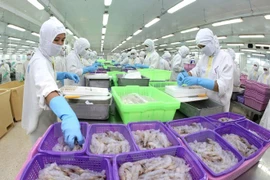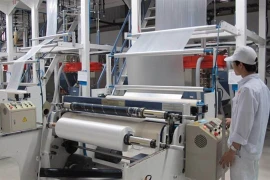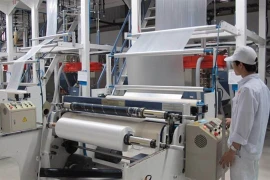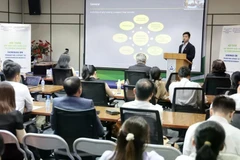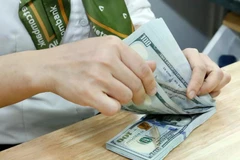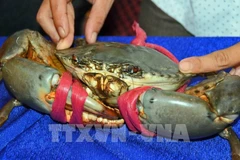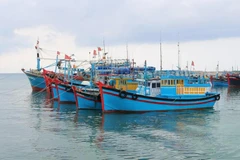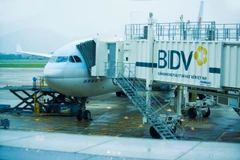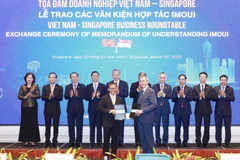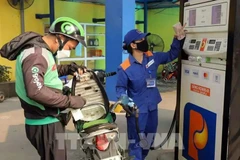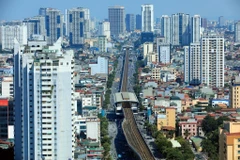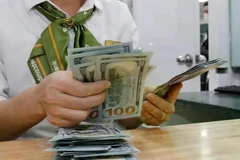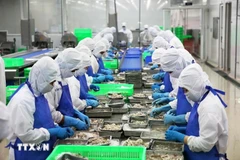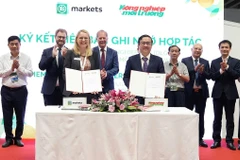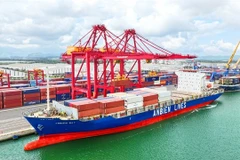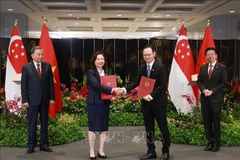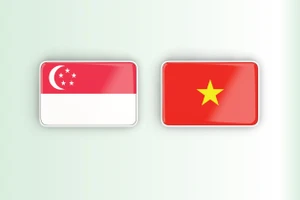Theobjection was made after the CBP had applied the Enforce and Protect Act (EAPA)to conclude that frozen shrimp products exported by the Minh Phu SeafoodJSC to the US market should be subject to tax in accordance with theanti-dumping duty order imposed on shrimp from India. It said the company didnot provide sufficient evidence as requested by the CBP to prove that thecompany was not using shrimp originating from India for export to theUS.
A representativeof the Minh Phu Seafood JSC said the CBP’s conclusion was not accurate and itwould appeal against the above decision.
CEOof the Minh Phu JSC Le Van Quang said the decision was a big surprise for thecompany because as soon as it had received the CBP’s notice of aninvestigation, Minh Phu had fully cooperated with the investigating agencyand demonstrated clearly how the company handled and separated shrimp ofVietnamese origin and Indian origin on the production line to ensure thatonly Vietnamese shrimp was exported to the US.
“Althoughwe actively cooperated and invited investigators from the CBP to visit usin Vietnam, they did not conduct field verification. This has led to theCBP's inaccurate assessment of Minh Phu's imported shrimp and Vietnamese rawshrimp traceability system,” Quang said.
Quangsaid the CBP had its own evaluation criteria for shrimp separationmethods, and asserted that Minh Phu should have used this tool to tracethe raw shrimp. It rejected the traceability management method that Minh Phu had beenusing for more than four years.
Hesaid as Minh Phu did not follow the method requested by the CBP, the agencyhad applied “available adverse facts” and concluded that Minh Phu hadviolated the EAPA law.
“Thisrequirement of the CBP is not completely consistent with the productioncharacteristics of the shrimp industry. According to research by thecompany, no shrimp exporting enterprises have such a traceability system,” headded.
Infact, Minh Phu has clearly demonstrated its separation and traceability methodapproved by the National Oceanic and Atmospheric Administration(NOAA) under the US Department of Commerce, based on its requirementsfor the Seafood Import Monitoring Programme.
“MinhPhu completely stopped importing raw shrimp from India at the end of July2019 because domestic raw materials were fully capable of supplyingour factories,” Quang said.
MinhPhu has successfully applied and effectively operated a high-tech shrimpfarming model at its two farming areas Minh Phu Kien Giang (600ha) andMinh Phu Loc An (300ha). It has also been establishing a network of shrimpsuppliers across the Mekong Delta and southwest, with diverse models ofsustainable shrimp farming.
“Webelieves the CBP's decision was made based on an unreasonable request andwas not based on compelling evidence. Therefore, Minh Phu will exerciseits right to appeal against this decision. Minh Phu is confident ofputting forward a convincing appeal because the CBP's decision was notbased on any authentic arguments,” Quang stressed.
Accordingto Quang, the review process was expected to take place within 60 days from thedate the appeal is recorded. In case the appeal did not produce thedesired results, Minh Phu would appeal to the Court of InternationalTrade. Whilst waiting for the outcome of the appeal, Minh Phuwould make every effort to ensure the CBP's ruling did not affect itsexport business to the US.
OnJanuary 14, 2020, the CBP announced the initiation of an investigation intoanti-dumping tax evasion that is currently applied to Indian shrimp exports. Ithas also investigated MSeafood Company, a subsidiary of the Minh Phu JSC in theUS, on suspicion the company had imported raw shrimp from India for preliminaryprocessing and export to the US in the guise of shrimp originatingfrom Vietnam./.

